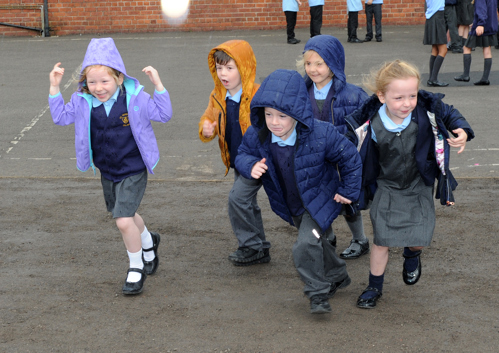Make movement fun! What’s your relationship with movement?
An example of embedding the Physical Literacy approach in education in Oldham.
Share

Some innovative work around ‘Physical Literacy’ in Oldham is showing encouraging signs in supporting School Games work across the borough, by inspiring wider school stakeholders to reflect on their own relationship with movement.
As one of the School Games Organisers in Oldham, Tim Liptrot has been looking for innovative ways to enable more young people in the borough to enjoy movement in their everyday life. Having recognised the vital role that the primary school workforce plays in providing positive experiences of physical activity and movement, it became clear that the conversation needed to start with key stakeholders from all levels. This includes teachers and teaching assistants, midday supervisors, and young people themselves as playground leaders.
Tim devised a training offer that would allow the workforce and young people to use their own reflection on their relationship with movement. This would ensure that the opportunities provided in schools not only created meaning, value and joy to the young people participating, but those delivering the opportunities would feel confident and motivated to provide these experiences too.

Though this approach was new, it quickly became apparent that allowing people to reflect on their own experiences and relationship with movement, created a whole different way of thinking and planning around opportunities for young people to move more during the school day. As Tim remarked:
“I have been delivering training to schools on 60 active minutes for a number of years, but I was starting to notice that leading with the language around minutes and sport was sometimes presenting me with challenges before I had even got into the school to deliver the training. This was sometimes particularly noticeable amongst the midday supervisors, who didn’t always see this as their role and questioned their suitability and confidence to deliver or facilitate opportunities for physical activity.
“However, when I started the conversation with them through the angle of their own physical literacy - their relationship with movement - the barriers started to lift. They started to understand that positive early experiences are crucial and therefore the activities that they were creating needed to be active, fun and enjoyable.”
By reflecting on the following questions, Tim was able to get the staff to consider their own physical literacy journey:
- What movement and physical activity did you enjoy doing at school?
- What is your relationship with movement and how has this changed throughout your life?
- How could you draw on some of what gave/gives you meaning, value and joy to support the young people in your school to engage in physical activity?
“The outcome of this approach resulted in the midday staff becoming more excited and motivated to deliver the games that they had enjoyed themselves as young people. It also allowed them to recognise the importance of ensuring that each opportunity is a positive experience - not just allowing the young person to move, but to also learn, feel and connect”
“We now have a book of 100 playground activities that midday supervisors have co-produced using their experience. Its combination of some of the traditional games they used to play and what the young people they work with have enjoyed.”
This approach quickly had a ripple effect, with schools recognising that reflecting on a personal physical literacy story wasn’t only beneficial to the midday supervisors. Schools requested training where all staff were encouraged to reflect on their relationship with movement, and how this could support positive experiences of physical activity and movement for young people in their school.
To date 8 schools and 97 members of staff have received this training, with the potential for it to have a lasting impact on 1800 young people.
The success of the training has continued to grow and schools that had previously not engaged with Oldham’s School Games offer have now started to do so as result of this approach.
Latest News

Empower Her: Lessons from a place-based approach to widening access to football
The 'Empower Her' fund supports inclusive football sessions, leadership pathways, and stronger local partnerships.

National recognition for Prehab4Cancer as it launches education initiative for leisure centre staff
Experience, education and data garnered by the pioneering Prehab4Cancer (P4C) programme in Greater Manchester has helped to shape national guidelines on cancer care adopted by the NHS and Macmillan Cancer Support.

Race Equality Week 2026: Why change needs all of us
By understanding cultural norms, feelings of belonging, and how safe people feel in a space, we can make physical activity more inclusive for everyone.
